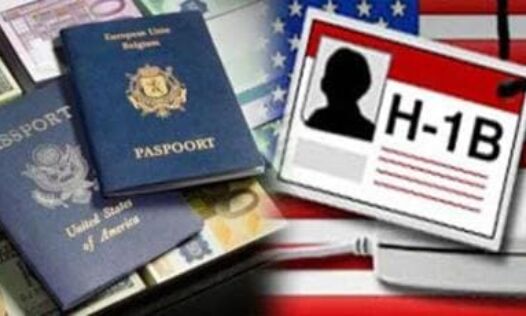Payment is being processed. Please do not refresh or close this page until your payment is complete.
 Book an Appointment
Book an Appointment

For several years until mid-June 2004, the U.S. Department of State (DOS) re-issued visas for certain non-immigrant workers within the U.S. After almost ten years, the DOS has initiated a pilot program to reinstate this facility. The scope of this pilot program is limited to certain categories, as highlighted in an earlier article published by the Economic Times. In this article, we will address some of the details pertinent to this pilot program and related issues.
Under the new pilot program, eligible applicants will be required to apply on a dedicated DOS portal that will become operational closer to the opening date. The DOS portal will first require a self-guided assessment to determine eligibility before the applicant can complete the standard Form DS-160 nonimmigrant visa application and pay the requisite US$205 non-refundable application fee. All fees must be paid online by debit or credit card.
Demand for the pilot program is expected to be very high, and application slots are limited. It is important to prepare in advance to avail of this benefit as soon as the program begins accepting applications. Application filing slots will be made available weekly on the following dates:
- January 29, 2024
- February 5, 2024
- February 12, 2024
- February 19, 2024; and February 26, 2024.
The DOS will only accept up to 4,000 applications per week – with a limit of 2,000 from applicants with visas issued by a U.S. Consulate in India and 2,000 from applicants with visasa visa issued by a U.S. Consulate in Canada. The application website will be closed when the DOS receives applications to meet these limits and will be reopened on the next date when the next batch of 4,000 applications, as per these limits, will be accepted.
Once the fee is paid on the website, applicants will receive instructions to submit their passport and the following supporting documents to the DOS:
Completed and electronically filed Form DS-160;
One recent passport-size photograph that meets DOS specifications;
Passport with at least six months validity beyond the visa application date and containing at least one blank, unmarked page;
A copy of the applicant’s valid, unexpired USCIS H-1B petition approval, Form I-797; and
A copy of the applicant’s valid, unexpired Form I-94 arrival record.
These documents must be submitted via U.S. mail (USPS) or commercial courier service.Once the DOS receives these documents along with the passport, it will once again assess the application. If the application is deficient or the DOS determines that the applicant is ineligible, the application will be returned. However, the application fee will not be refunded.The anticipated processing time is 6 to 8 weeks from the time the DOS receives the application but could take longer. It is not possible to expedite or request premium processing for these applications. If, during the processing period, an applicant needs to travel overseas, he or she may withdraw the application and ask for the passport to be returned. If an application is withdrawn, it will be considered a “visa refusal” (and the visa fee will not be refunded), though this refusal will not have a prejudicial effect on future applications. The DOS expects that all the qualified applications under the pilot program will be adjudicated by May 1, 2024. An application may be denied if (1) the application is incomplete, (2) if the DOS determines that an applicant is not eligible for the pilot program, or (3) if additional security screening is required. If an application is denied, the foreign national will need to apply for visa renewal at a U.S. Consulate abroad by filing a new Form DS-160 application and by paying another application fee. The DOS may allow an applicant to cure minor defects, such as missing documents, minor errors, or missing information. However, missing information or corrective steps must be taken by April 15, 2024, in order to overcome the defect before the pilot program closes.
The pilot program is a great opportunity for eligible foreign nationals to renew an H-1B visa within the U.S. It helps avoid the need to travel abroad and face the potential uncertainties and delays at a U.S. Consulate. However, since the pilot program does not extend to family members who are on H-4 visas, it is a challenge, as H-4 visas can only be issued at a U.S. Consulate abroad.
Though the initial pilot program is limited in scope and duration, the DOS has indicated that it expects to eventually expand the pilot program to new visa categories and countries of visa issuance.